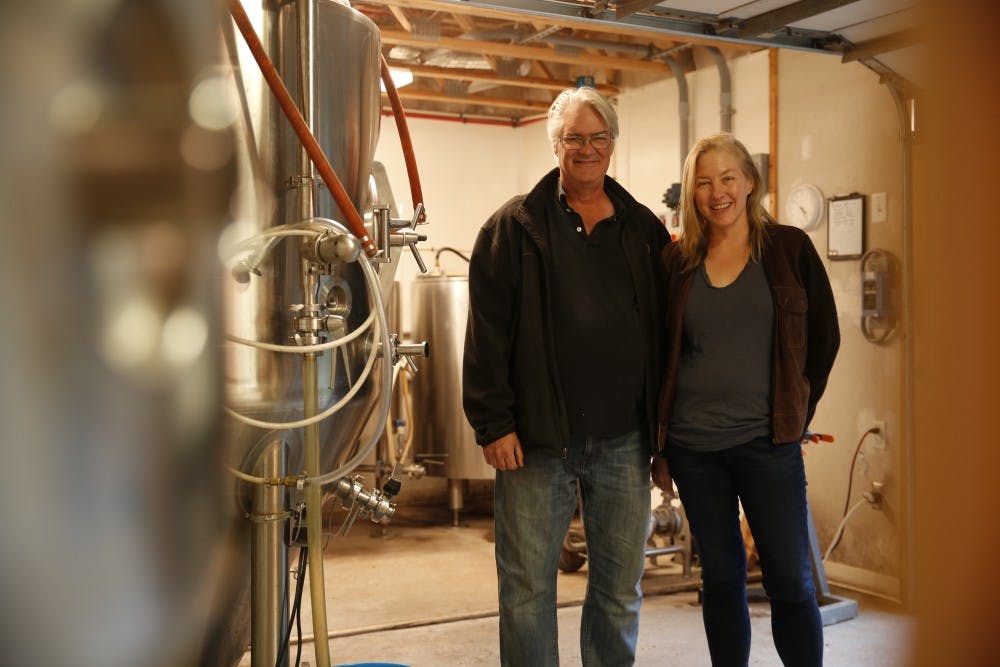Sean Wilson, the "chief executive optimist" at Fullsteam Brewery, was at a friend’s party when he discovered a love for craft beer that would eventually turn legislative. He said the party was full of unique bottles with batch numbers written on them, full of flavors he had never experienced.
“I asked my friend, 'These are amazing, you know, where can I get these?' And he said, 'No, you can't get them in North Carolina, because they’re illegal,'” Wilson said.
Prior to 2005, no one could sell beer over 6 percent ABV. This limited the craft beer industry and the creation of diverse beer types such as saisons, India pale ales and sours. Wilson said he banded together with 34 other beer fans and enlisted the help of lobbyist Theresa Kostrzewa to change the law.
“This is unheard of, you know? In one session, you’re changing alcohol legislation in the South,” Wilson said.
After the law was passed on Aug. 13, 2005, people who once had to travel out of the state to get craft beer could now purchase their own up to 15 percent ABV. Fullsteam opened in 2010, even though Wilson said that was never the idea.
"We did it just for the love of beer, honestly," Wilson said. "Again, we did not have plans, I did not have plans to start up a brewery, I just really wanted to see this thing through."
While competition is growing, Wilson and Harper said that the Triangle has embraced brewery culture and that small, local breweries serve a valuable role in their communities, both economically and socially. Harper said that while competition can be fierce, everyone is ready to help one another.
“What you see that I really love is that breweries are serving as a community center and as a hub for community involvement and entertainment and the arts and creativity,” Wilson said.
The existence of a brewery culture goes beyond just the producers of the beer. Restaurants around the Triangle have begun to carry craft beer right next to their mass-produced domestic options. The lifting of the 6 percent cap on ABV created new options for bars and taprooms wanting to expand.
Tyler Huntington, owner of Tyler’s Taprooms and the Carrboro Bottle Shop, was a brewer in the Pacific Northwest before coming to North Carolina. Opened almost 30 years ago, he said his restaurant was the first all-craft beer bar in North Carolina.
“The easiest thing would have been to open a bar and, you know, sell a bunch of mass-produced domestics,” Huntington said.
While Huntington said he does not look down upon anyone’s beer selection, he wanted to provide a place for craft beer lovers to congregate. Huntington opened the restaurant out of a love for industry and because he said he saw potential in the market. The self-proclaimed “accidental entrepreneur” said most brewers he knows aren’t in it for the money.
To get the day's news and headlines in your inbox each morning, sign up for our email newsletters.
“I don’t personally know anybody in the business around here right now that got into it because they thought they were gonna make a gazillion dollars,” Huntington said. “They got into it because they had a passion for it.”
While not a brewer anymore, Huntington said the community isn't just tight-knit amongst bottle shops and distributors. He said he has enjoyed watching brewers grow closer after the initial trepidation after the initial passing of the Pop the Cap legislation.
Huntington said one of his favorite parts of the job is watching people he works for grow up and out of Tyler’s to become beer representatives or work for their own breweries. Coming from the established beer culture of Seattle, he was excited to see the North Carolina beer scene grow in the same way.
“A lot of people are watching this industry and going, you know, it’s tapped out, there's too many, the bubble is gonna burst, and it’s like, well, I don’t know, I think there’s some room,” Huntington said.
@MollyLooman
arts@dailytarheel.com




